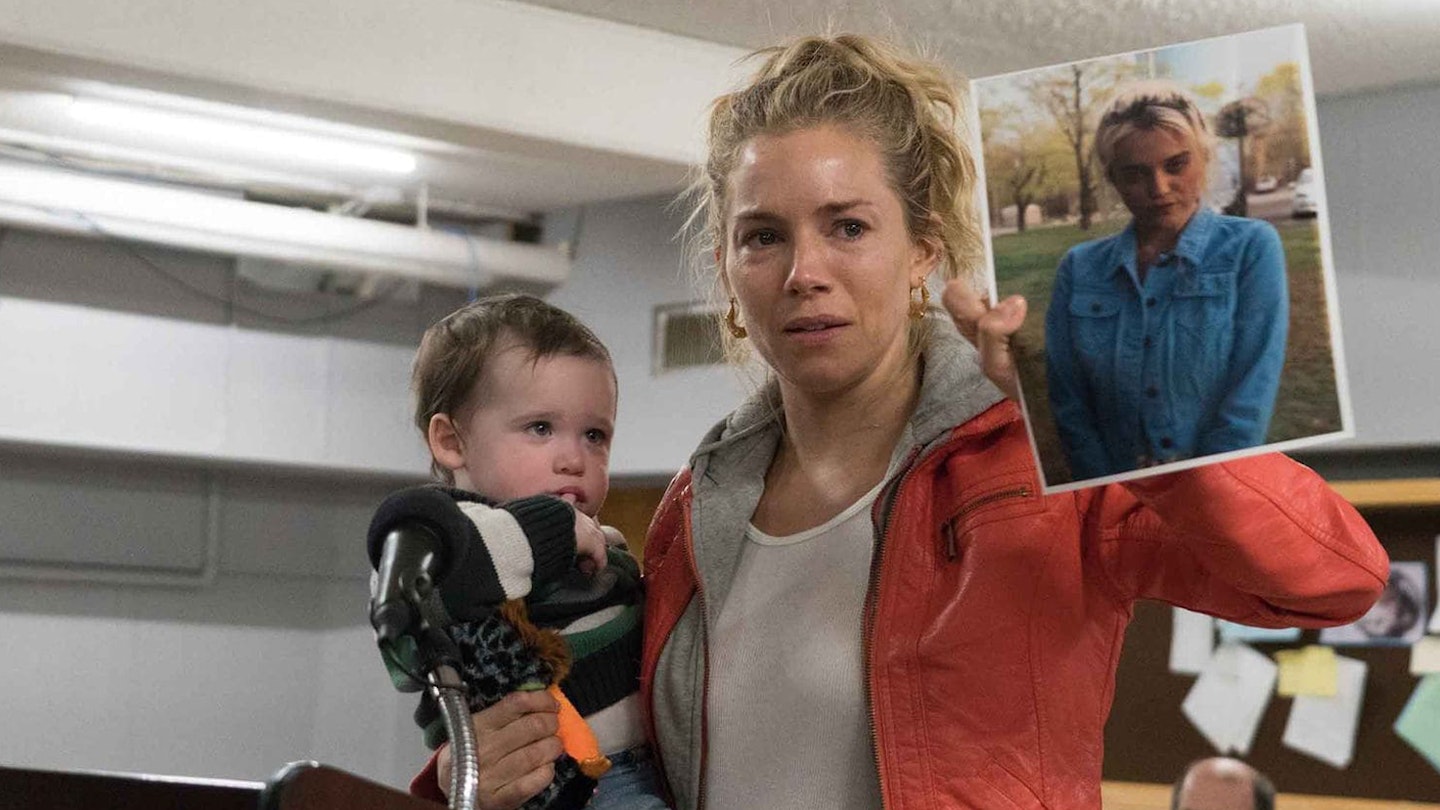Apt for a film about a woman coming into her own, American Woman feels a bit like a graduation party for Sienna Miller. After owning big roles in little films (Factory Girl, The Edge Of Love) and shining in supporting parts in big movies (American Sniper, Foxcatcher), Jake Scott’s drama-cum-character study gives her the chance to show both her breadth and depth as a performer. And she grabs it with both hands.

American Woman tests Miller’s acting chops not only by challenging her to play a woman deeply rooted in rural America but also trace a character over ten years of ups and mostly downs. Miller’s Deb Callahan starts the movie as a spicy thirtysomething single mum, running with a married man, working in a supermarket, warbling Mr. Mister’s ‘Kyrie’ in the kitchen and arguing about her life choices with her sister Kath (Hendricks), who lives across the street. Her world falls apart when her daughter Bridget (Ferreira) doesn’t return after a night out, but save some brief staple scenes from any missing person’s drama (locals forming search parties, emotional TV appearances, drunk driving), Brad Ingelsby’s script moves on pretty quickly to capture Deb putting her life back together, with boyfriends (Pat Healy’s abusive Ray, Aaron Paul’s charming Chris) and new jobs (she trains to be an accountant), all the while raising her grandson in the shadow of Bridget’s absence.
Miller’s skill as an actor perfectly modulates Deb’s growth over a decade.
At its best American Woman shares the shaggy-dog quality of the new Hollywood cinema of the ’70s. There’s something of Alice Doesn’t Live Here Anymore in the ease and rapport between Deb and Kath and the grass roots feminism where Deb comes to realise there is more strength and sustenance to be found in feminine (and familial) bonds than a succession of bad blokes. Miller and Hendricks, miles away from the buttoned-up Joan Holloway in Mad Men, have a ball quarrelling, fantasising about Tom Selleck and insulting each other on the phone after a double date. As jagged and shout-y as Deb’s life becomes, the film revels in the warmth between the two households, captured in a lovely wedding scene.
The film is overstuffed with story, particularly when it comes to the missing daughter aspect. Apart from the dubious use of a woman in peril purely as a catalyst for character transformation, it also feels redundant. There is enough conflict — be it economic constraints or coercive relationships — in the fabric of Deb’s life to initiate an arc that feel more organic and less heavy-handed than a plot-line stolen from Without A Trace. Miller’s skill as an actor perfectly modulates Deb’s growth over a decade, not only delineating the passage of time without resorting to bad wigs and prosthetics, but also beautifully etching a woman getting her shit together. It’s all a very long way from Layer Cake.

